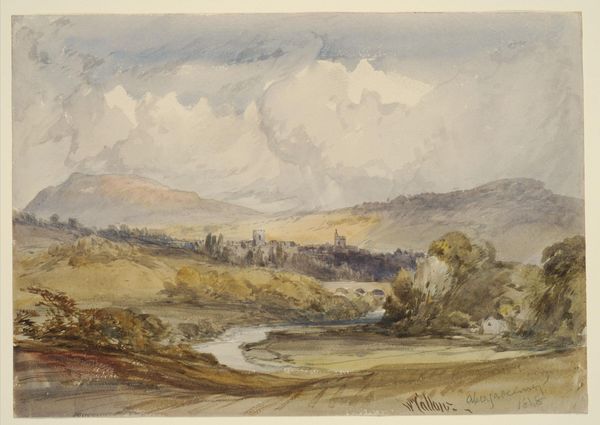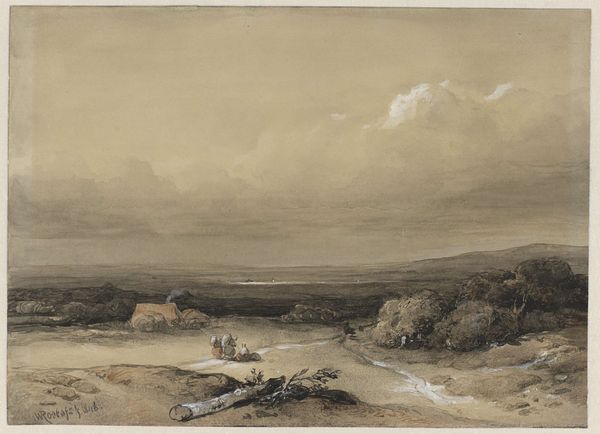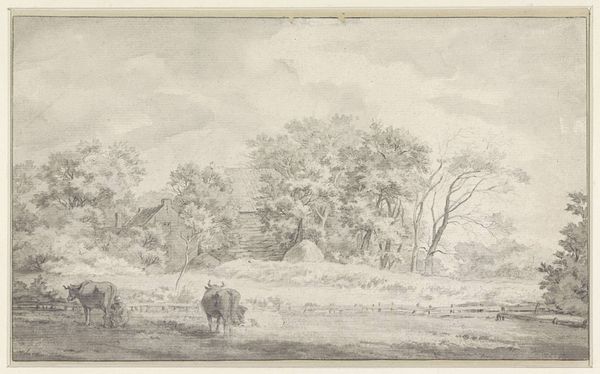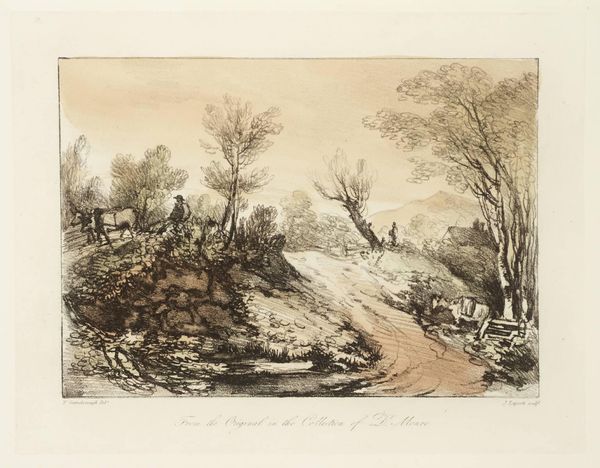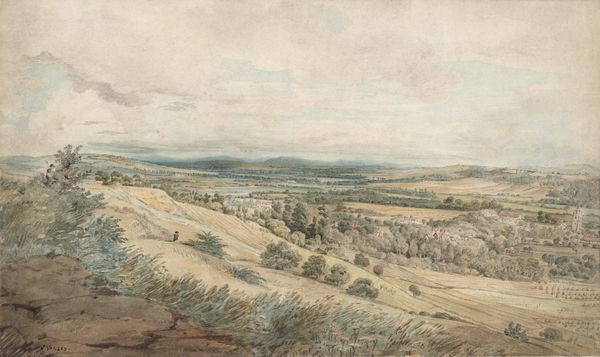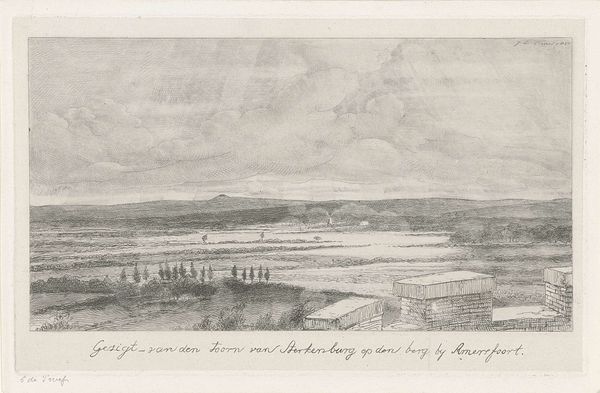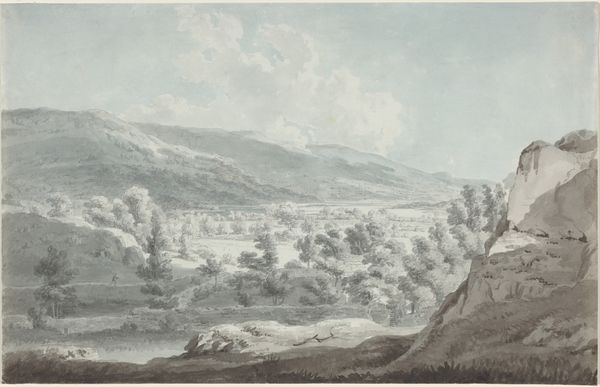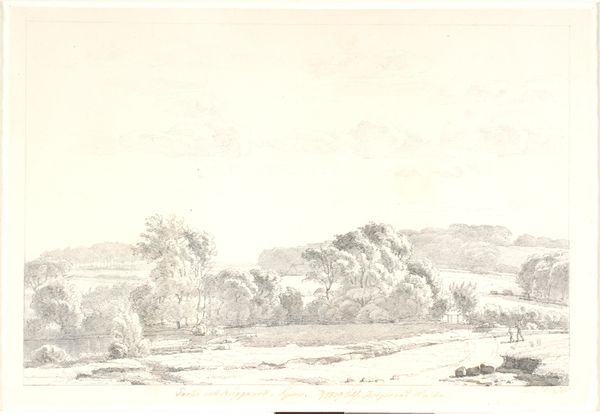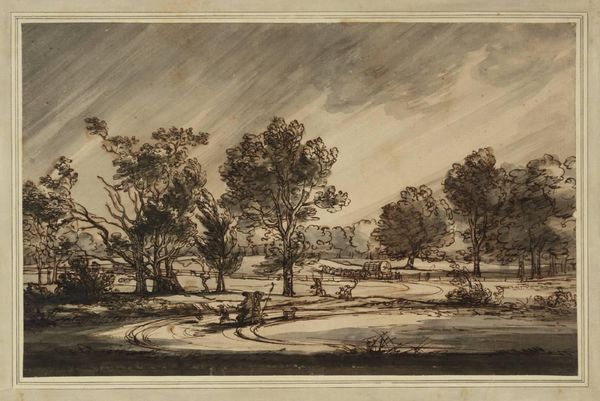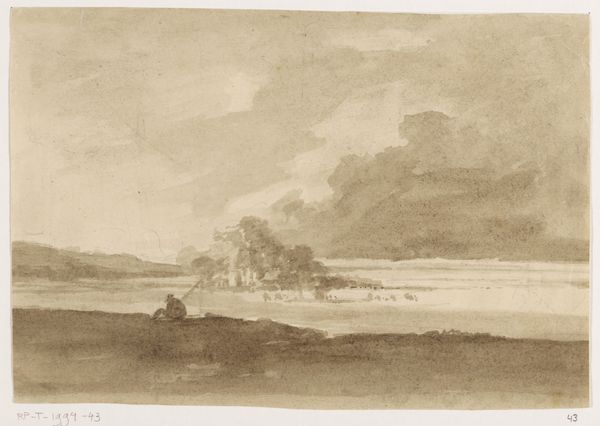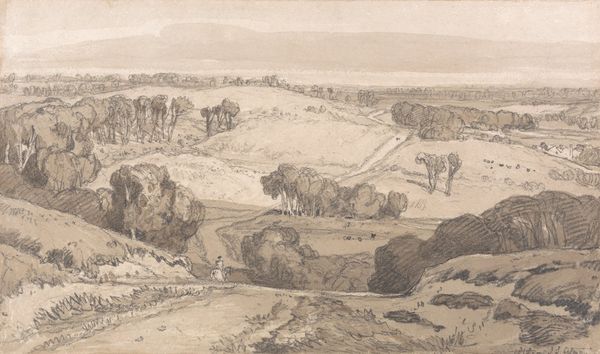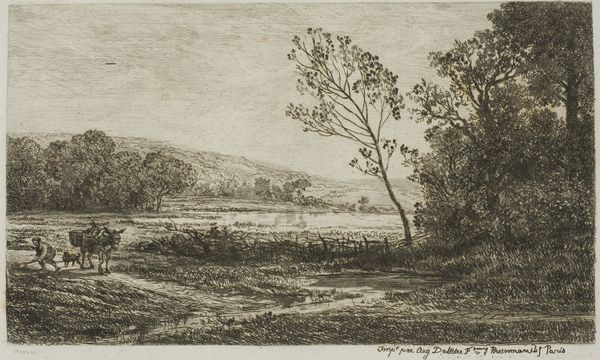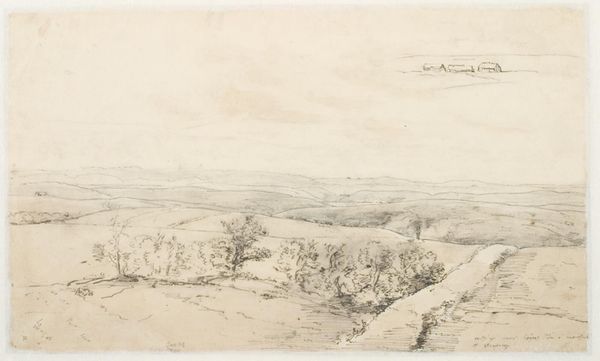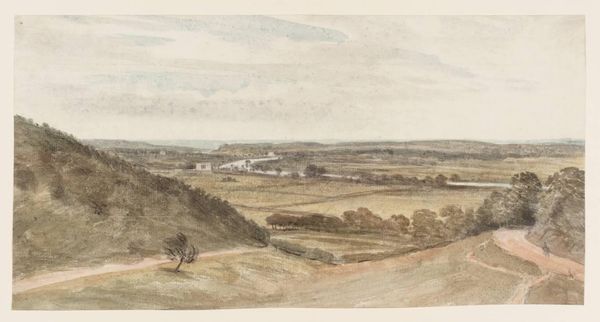
Ruin of an Aqueduct on the Road to Cori, Italy 1789
Dimensions: 34.5 x 53.8 cm (13 9/16 x 21 3/16 in.)
Copyright: CC0 1.0
Curator: I'm immediately struck by the overwhelming sense of melancholic stillness. The muted palette and dilapidated aqueduct convey a feeling of profound loss and the passage of time. Editor: Indeed. We're looking at "Ruin of an Aqueduct on the Road to Cori, Italy" by Carlo Labruzzi. Though undated, Labruzzi lived from 1748 to 1817. It offers a glimpse into the Roman Campagna, a region laden with historical weight. Curator: That explains the aqueduct, an ancient symbol of Roman engineering prowess. Yet, here, it lies in decay, a poignant reminder of impermanence. What do you make of its setting? Editor: The rolling hills, the overgrown foliage, and the rough track emphasize the power of nature reclaiming human endeavors. These picturesque ruins are not merely aesthetic; they are a comment on civilization itself. Curator: It's as if Labruzzi is inviting us to contemplate the cyclical nature of history, where even the grandest empires eventually crumble into dust. Editor: Perhaps, by rendering this scene, he's challenging the viewer to look beyond the romanticized view of the Roman Empire and consider its ephemerality. It's a reminder that time marches on, indifferent to human ambition. Curator: Seeing this image is an invitation to acknowledge and maybe even find beauty in the transience of human endeavor. Editor: Absolutely. Labruzzi’s landscape leaves me contemplating the relationship between humanity's grandest ambitions and nature’s enduring presence.
Comments
No comments
Be the first to comment and join the conversation on the ultimate creative platform.
